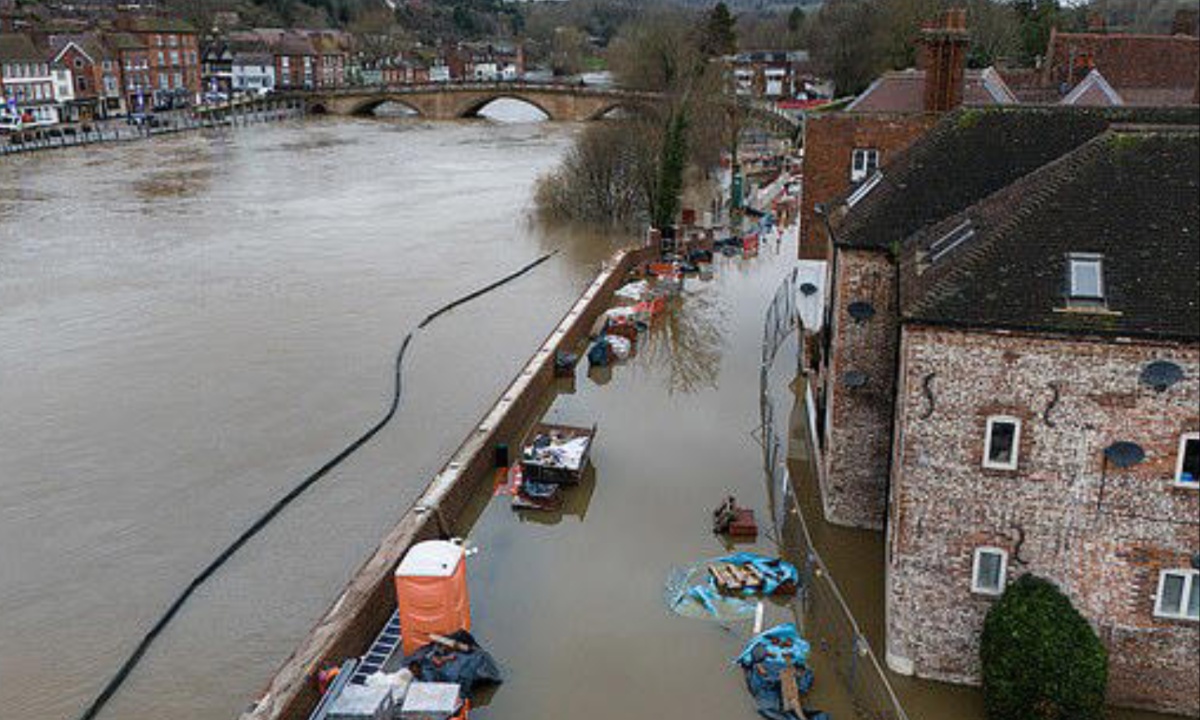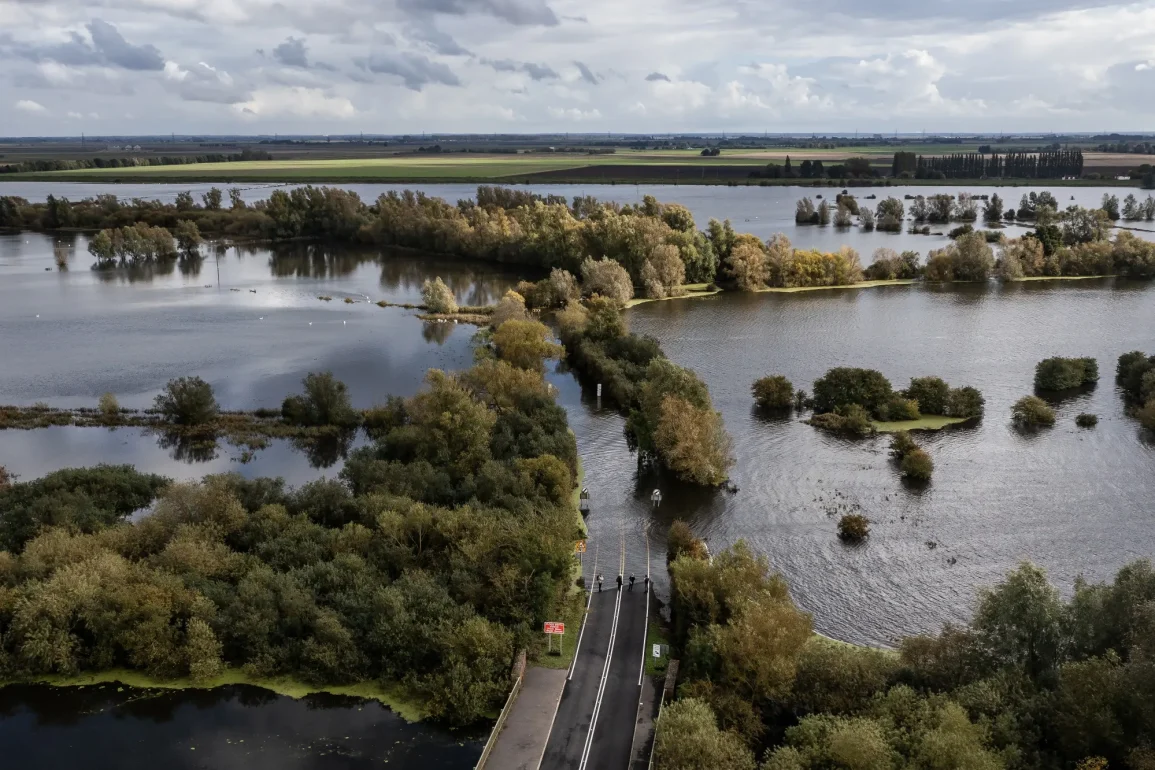The Environment Agency (EA) has released a report warning that up to eight million properties in England, or one in four, could be at risk of flooding by 2050 due to climate change. This marks the first comprehensive assessment of how a warming world might impact flooding risks, highlighting threats from more intense rainfall and rising sea levels. The study emphasizes that flood risks are expected to increase across the country, with vulnerable regions likely facing more frequent and severe flooding events.
Currently, 6.3 million properties in England are considered at risk from flooding, which is higher than previous estimates. The risk is primarily driven by flooding from three sources: rivers, the sea, and surface water, which occurs when heavy rainfall overwhelms drainage systems. The EA defines “at-risk” properties as those with a greater than one-in-1,000 chance of flooding annually. The report indicates that surface flooding poses a significant risk, particularly in London, where the number of properties at risk has risen by 43%, largely due to improved data and modeling techniques rather than an actual increase in flood events.

Looking to the future, the EA projects that climate change could increase the number of properties at risk of surface flooding to approximately 6.1 million by mid-century. Heavy rainfall is expected to become more intense due to global warming, and recent data shows that stormy days in the UK have already seen a 20% increase in rainfall due to climate change. Flooding from rivers and the sea is also projected to rise from 2.4 million properties today to 3.1 million by 2050, with regions such as the East Midlands, Yorkshire, and the south-east facing heightened risks.
Rising sea levels, driven by melting glaciers and thermal expansion of seawater, pose a significant threat to coastal areas. Since 1900, sea levels around the UK have already risen by nearly 20cm, with most of this increase occurring since 1990. This rise in sea levels exacerbates the risk of coastal flooding and erosion, which could result in nearly 20,000 properties being lost to the sea by 2100, up from 3,500 by mid-century. The UK’s coastlines are already some of the fastest eroding in Europe, and climate change is expected to accelerate this trend.
In response to the findings, the EA stresses the importance of proactive flood defense measures. While the report focuses on the impacts of climate change, other factors such as urban development on floodplains and the maintenance of flood defenses will also shape future flood risks. The UK government has committed to spending £2.4 billion over the next two years to maintain and build new flood defenses. However, there have been concerns raised about the adequacy of current preparations, with some MPs warning that insufficient funding and maintenance of existing defenses leave many communities exposed to future flooding threats.

